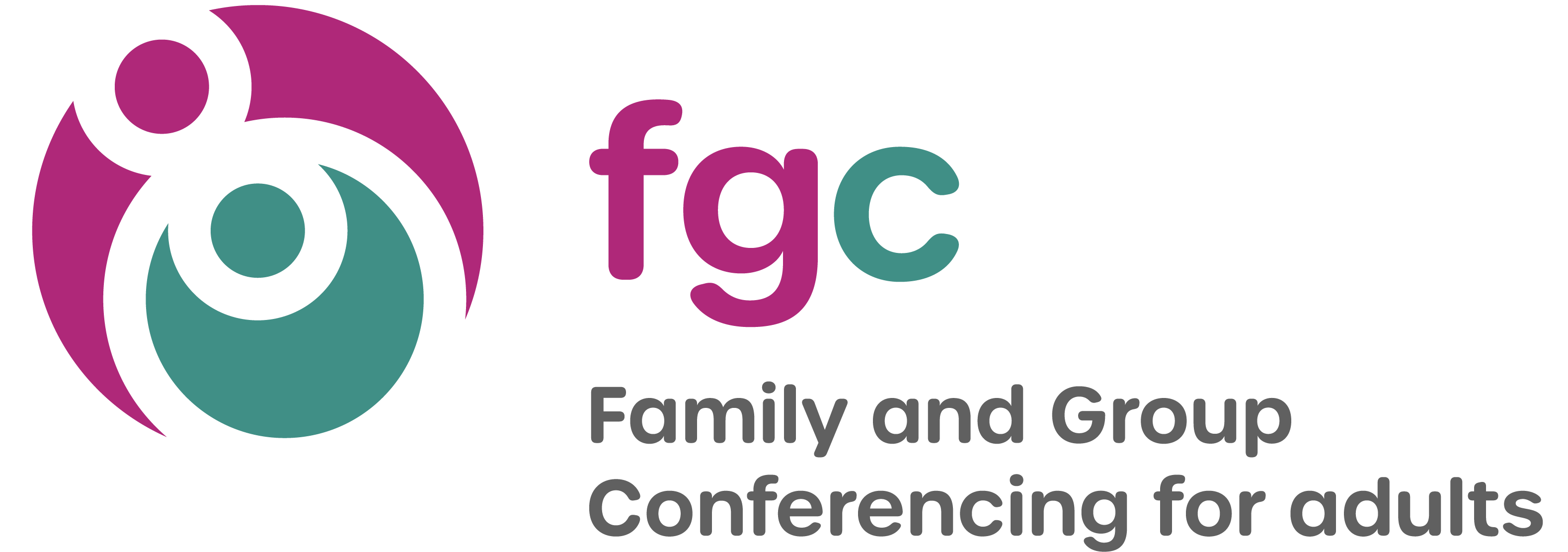I have worked for Community Catalysts CIC for nearly 7 years now where I have been embedded in our community micro-enterprise development projects. These projects support local entrepreneurial people to embark on leading their own small ventures offering flexible, personalised and creative care and support at a really local level.
The care that these enterprises provide is collaborative, working in direct relationship as partners with the people they support, taking the time to understand what a good life looks like for them.
It has been a personal joy to see enterprise leaders flourish as they are supported step-by-step to take on new entrepreneurial roles and bring their visions for new ventures to life. And the stories of difference for local people who draw on this care and support is what makes the heart sing.
My reflections on Family and Group Conferencing for Adults
Community Catalysts were invited to become the host organisation for the Family and Group Conferencing (FGC) for adults Research and Practice Network in 2023. The network consists of a varied group of passionate players from academia, practice and lived-experience.
The approach has been quietly gaining attention across adult social care and health sectors and in a few notable areas it is making a really positive contribution.
Since the start of 2025, I have been involved with this element of our work. I have spent these months listening to network members, researching and immersing myself in the FGC for adults approach.
The more that I have discovered of the approach, the more I have been convinced that it has a powerful role in play in unlocking capabilities, strengthening personal networks and untangling complexity for people to navigate their own way to better lives.
The key elements of the approach which have struck me are:
FGC as a tool to put people at the centre of their care – dealing with poor health or other personal challenges is incredibly destabilising; navigating the systems around social care or health takes a lot of energy and the confusion can feel disempowering. The FGC approach starts with giving people the space to express what matters to them and offers the context of a Conference for options to be presented and explored. The ‘private time’ a person has with their invited network to write their own plan is a meaningful way to give people the knowledge, tools and power to determine their own way forward.
FGC as a way to uphold and support family members – the love and care that family members and key personal networks offer is central in my mind to a good life; as I reflect in a personal capacity about what I would like for my own family members as they get older, my primary wish is to be alongside them and caring for them as much as I can. The vision of FGC is to recognise, uphold and strengthen those networks to enable them to care and support their loved ones in a healthy and sustainable way with access to great support from paid professionals and services.
FGC as a transformational process – Kar-Man Au’s brilliant reflections on her own experience of an FGC on the Relational Activism blog were a key lightbulb moment for my understanding of the power of the approach. Kar-Man talks about how engaging with an FGC required a vulnerability that made space for members of her network to demonstrate their solidarity with her and this was transformational in unlocking her own resourcefulness and equipping her with powerful tools to make decisions for her own life.
The values of this approach make it a wonderful extension of our work; there is synergy in the work of building capacity at the personal and local level, expanding capabilities and forging powerful partnerships built on trust and human connection.
It is our hope at Community Catalysts to support more areas to adopt Family and Group Conferencing for adults so that more people, wherever they live have access to this powerful tool.
